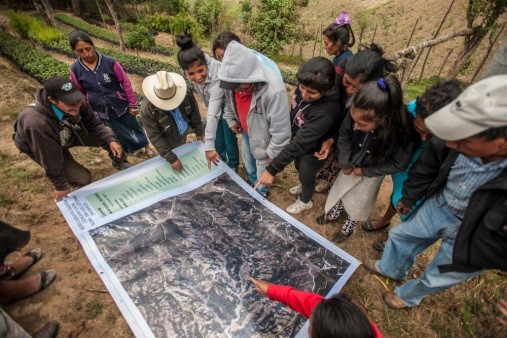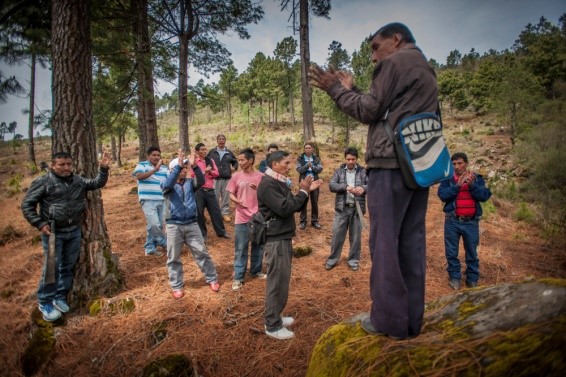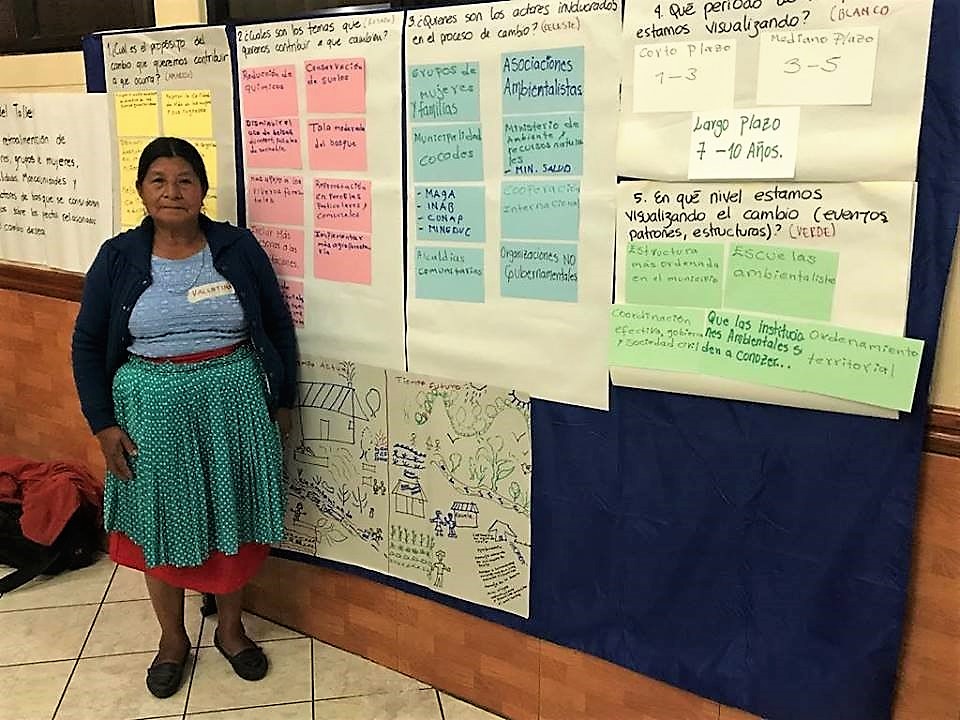Consolidating inclusive governance for adaptation
Sanajaba community identifies threats within the Esquichá micro-watershed (Coatán Basin)
IUCN @ Paul Aragón
Meeting with forest managers from El Rosario to plan activities. Esquichá Microbasin (Coatán Basin)
IUCN @ Paul Aragón
Valentina Ortiz (Tojchoj Grande community, Tacaná) member of the Esquichá River Micro-watershed Council
IUCN @ Milton Navarro
The stakeholders of the Esquichá River micro-watershed face governance challenges for adaptation, such as insufficient coordination between the community, municipal, departmental levels, and the sectors. The Council of the Esquichá River micro-watershed, gathers municipalities, communities, and the Communal Nurseries comissions. A multilevel technical support is provided to ensure sustainability:
- With technical support, the Committee has learned about EbA measures and has incorporated them into the micro-watershed Management Plan. Technical assistance has been provided to identify efforts for its implementation and financing (e.g. forestry incentives). This is how the Committee, now with greater organizational capacity, has had an impact on other instances (Municipal and Departmental Councils, INAB) and has achieved the allocation of funds for the EBA measures.
- Technical assistance provided on management of communal forest nurseries.
- Implementing a gender approach that actively involve women in capacity building and decision making. Women have been trained in communication skills, to improve their leadership abilities (https://www.iucn.org/node/29033).
- Support for the Municipality of Tacaná to integrate adaptation measures into the local planning (Municipal Development Plan).
- Under Guatemala’s System of Development Councils, the Esquichá River Micro-watershed Council is made up of the Community Development Councils of the micro-basin communities, which allow to work in an organized manner and influence higher levels (eg. Municipal Councils).
- CORNASAM, created in 2004 as a platform for departmental coordination, has allowed for an articulated dialogue between the municipalities of San Marcos, basin organizations and micro-watersheds.
- Gender approach to actively involve women in decision making and capacity building.
- The improvement of local women leadership skills, has a long-term impact in the management of natural resources and the social cohesion of communities. Women felt they had a lot to contribute; having taken ownership of these spaces, their confidence to act in other circles also increased. When consulted, women indicated that after gender and communication training, they have “lost the fear of expressing themselves in meetings where there are men," noting that they are aware of their right to participate as key actors in promoting forest restoration in water recharge areas as a climate change adaptation measure.
- Governance for adaptation must promote open, equitable, respectful, and effective participation, so that planning and decision-making mechanisms are enriched by inclusive participation.
- The EbA measures implementation builts upon community participation and local leadership. Communities are convened thought their leaders. This approach has greater chance to ensure sustainability in time and replicability of EbA measures.



